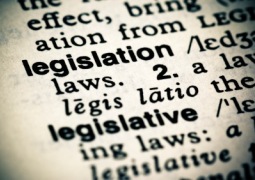
Parliament, Wednesday, 13 September 2017 – Parliament’s Portfolio Committee on Trade and Industry will tomorrow start its deliberations on the contents of the Debt Relief Committee Bill.
Today the Committee was briefed by the Parliamentary Legal Advisor, Adv Charmaine van der Merwe, on the applicable legal principles when considering legislation for debt relief. The key legal questions that needed to be answered are first: whether debt should be viewed as property; if so, whether debt relief would constitute deprivation, or expropriation, of property for purposes of Section 25 of the Constitution; and lastly, what the requirements would be to limit the rights set out in Section 25? According to her, there is no clear pronouncement on whether debt is property for purposes of Section 25, however considering existing case law and international comparisons, it is very likely that debt would be found to be property for purposes of Section 25.
Section 25 provides for two instances where the law may interfere with the property rights: deprivation and expropriation. The Parliamentary Legal Advisor expressed the view that any debt relief measure would constitute deprivation of property as it results in a sacrifice of property, but does not entail state acquisition. Accordingly, a debt relief measure may be imposed, provided it is done through a law of general application that is not arbitrary in its operation.
The Committee heard that for the Committee Bill to be a law of general application, it should treat persons in similar situations alike and the same penalties and privileges must be applied to the people and the state, that is, both private and state creditors should be affected by the Bill. The Parliamentary Legal Advisor further advised the Committee that the Bill must provide for the exercise of state power against a discernible standard, to avoid arbitrary actions by state officials when applying the law, and the Bill must be precise and clear.
To achieve this, the Committee was advised that the debt relief measure should include an application process, allowing for the application to be investigated and with an opportunity created for the creditor involved to provide information that will be relevant to the decision to grant or refuse debt relief. This investigation could be done by the National Consumer Regulator (NCR) who will make a recommendation to an adjudication body, such as the National Consumer Tribunal, to ensure transparency in the process and guard against arbitrary actions. This process will ensure that officials are consistent in the application of the law and has limited discretion, which will avoid arbitrary decisions.
Committee Chairperson, Ms Joanmariae Fubbs, indicated that the Committee will start deliberations tomorrow on, among other things, the requirements for the Committee Bill based on these legal principles, the category of debtors qualifying, the exact steps and requirements of the application process, and the requirements in relation to the NCR investigations, as well as the consequences of receiving debt relief.
ISSUED BY PARLIAMENTARY COMMUNICATION SERVICES ON BEHALF OF THE CHAIRPERSON OF THE PORTFOLIO COMMITTEE ON TRADE AND INDUSTRY, MS JOANMARIAE FUBBS
For media enquiries or interviews with the Chairperson, please contact:
Name: Rajaa Azzakani (Ms)
Parliamentary Communication Services
Tel: 021 403 8437
Cell: 081 703 9542
E-mail: razzakani@parliament.gov.za

